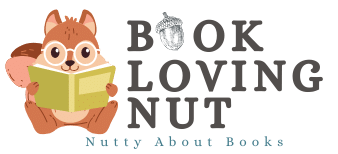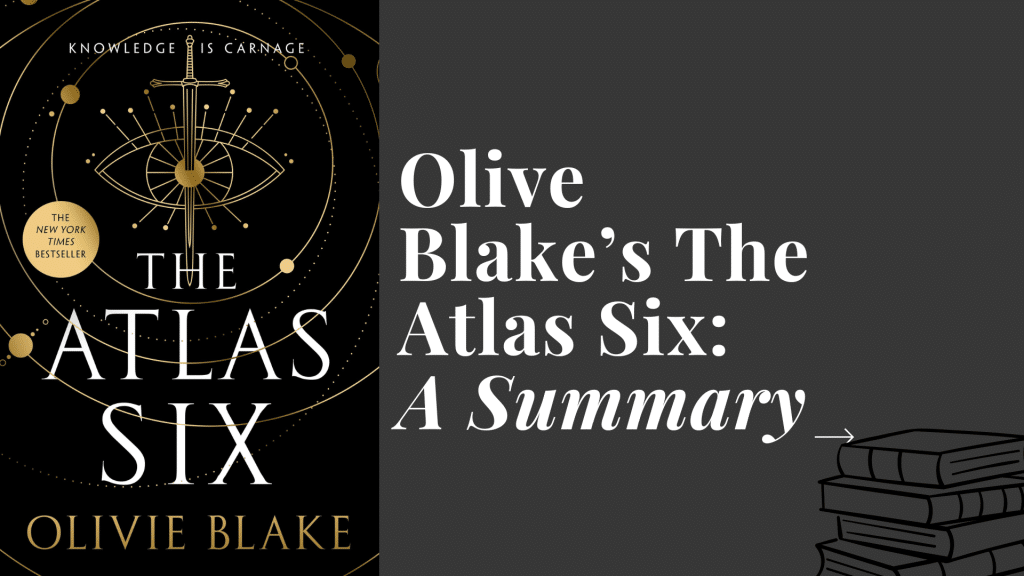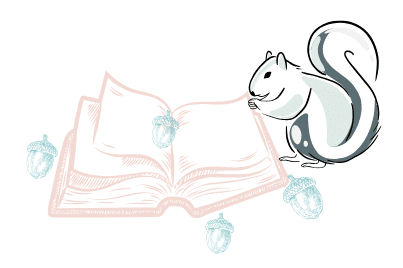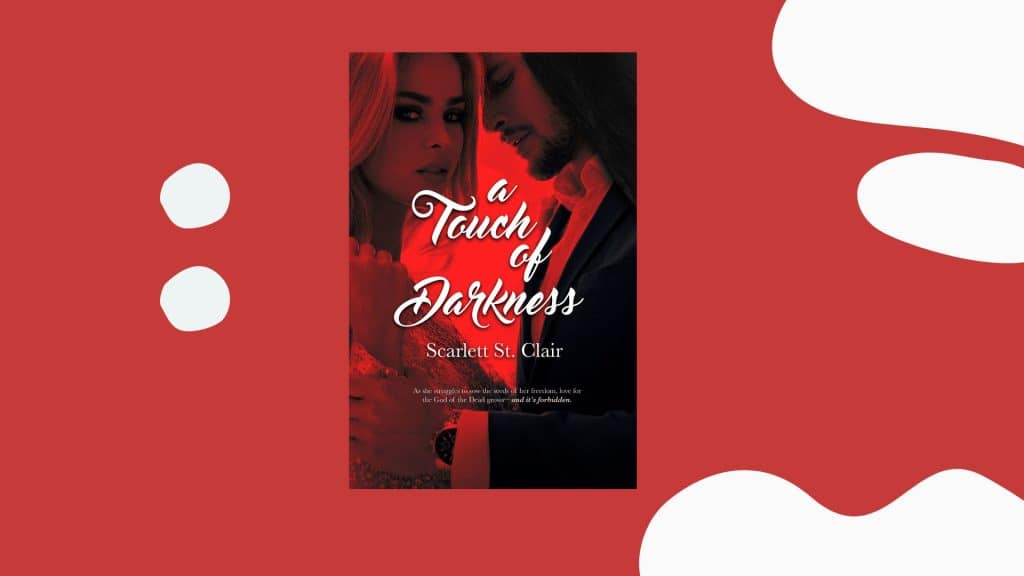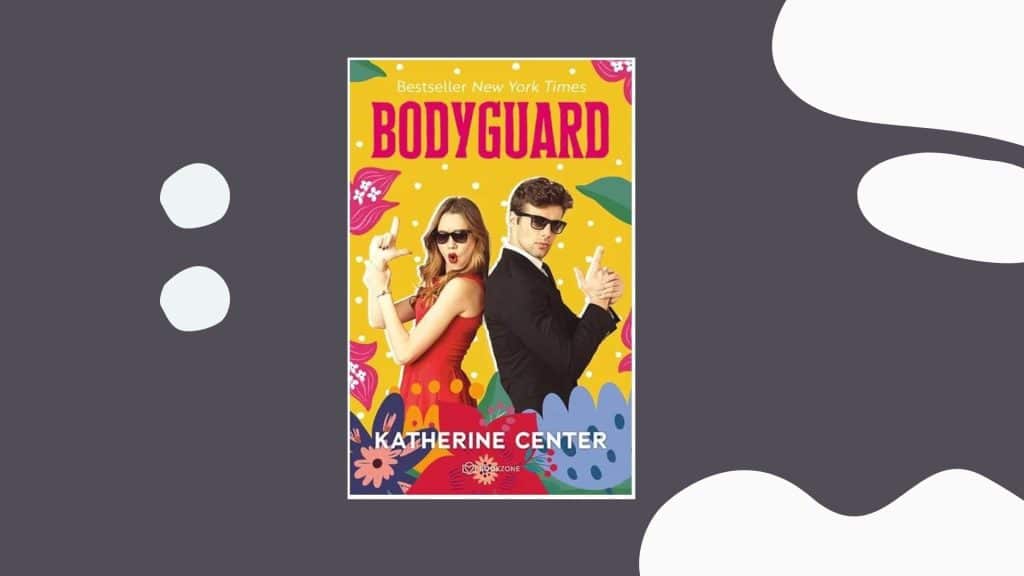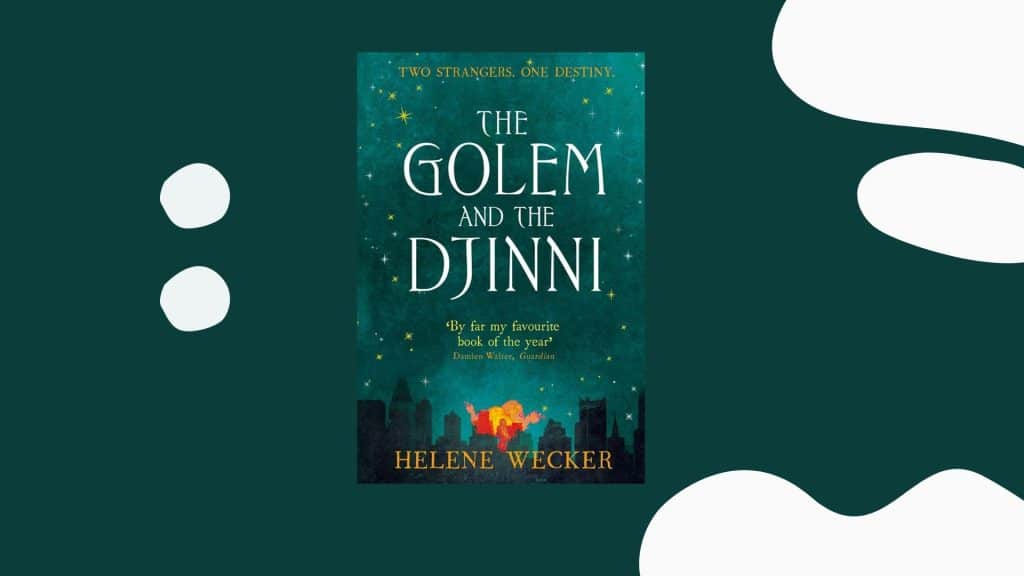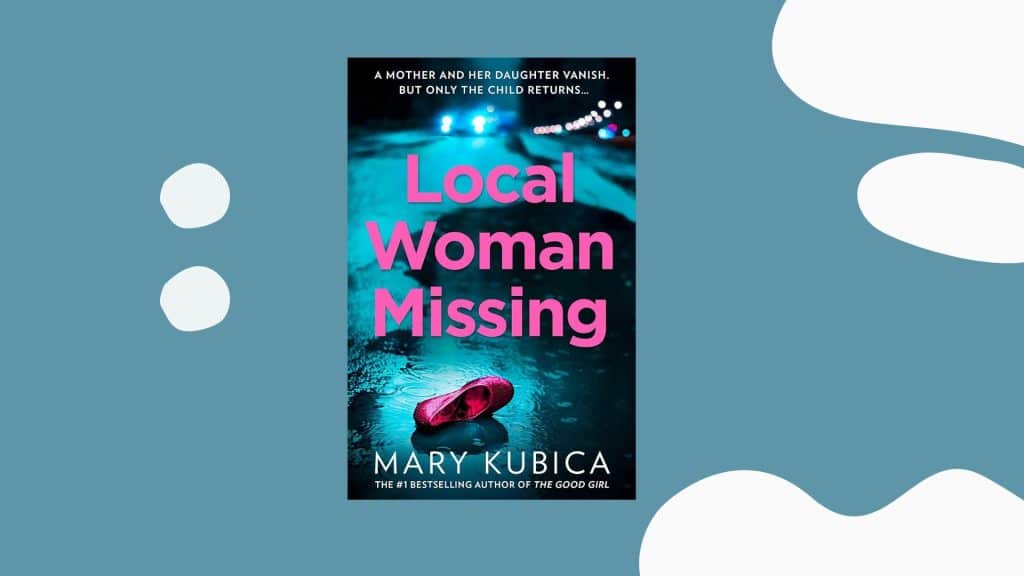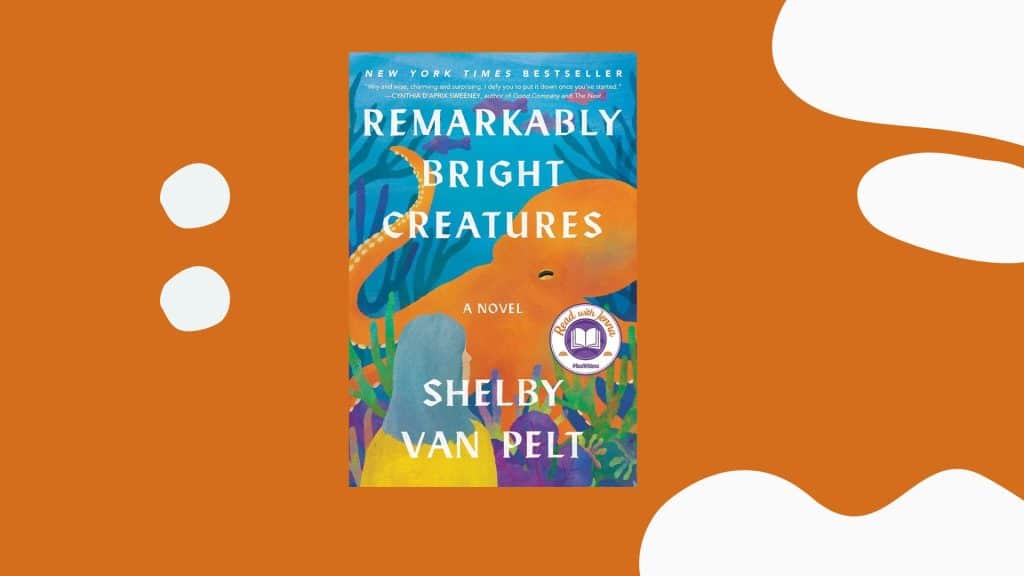“The world is a library, and you are just one book. It’s a hard thing to remember, but if you forget, the world will make you pay.”
— Olivie Blake, The Atlas Six
Ever wanted to dive into Olivie Blake’s magical world but didn’t have time to read the whole book? You’re in the right place.
The Atlas Six follows six magically gifted individuals competing for spots in the secretive Alexandrian Society. Only five will survive. The story blends dark academia with power struggles and complex relationships.
In this summary, you’ll find:
- A breakdown of all major plot points
- Character analysis of the main six medians
- Discussion of major themes and twists
I’ve read this book multiple times and will give you the complete picture without the 400+ pages. No confusing details or spoilers without warnings.
Whether you’re preparing to read the book or just curious about the hype, this summary has everything you need to understand Blake’s magical masterpiece.
Plot Summary of Olivie Blake’s The Atlas Six
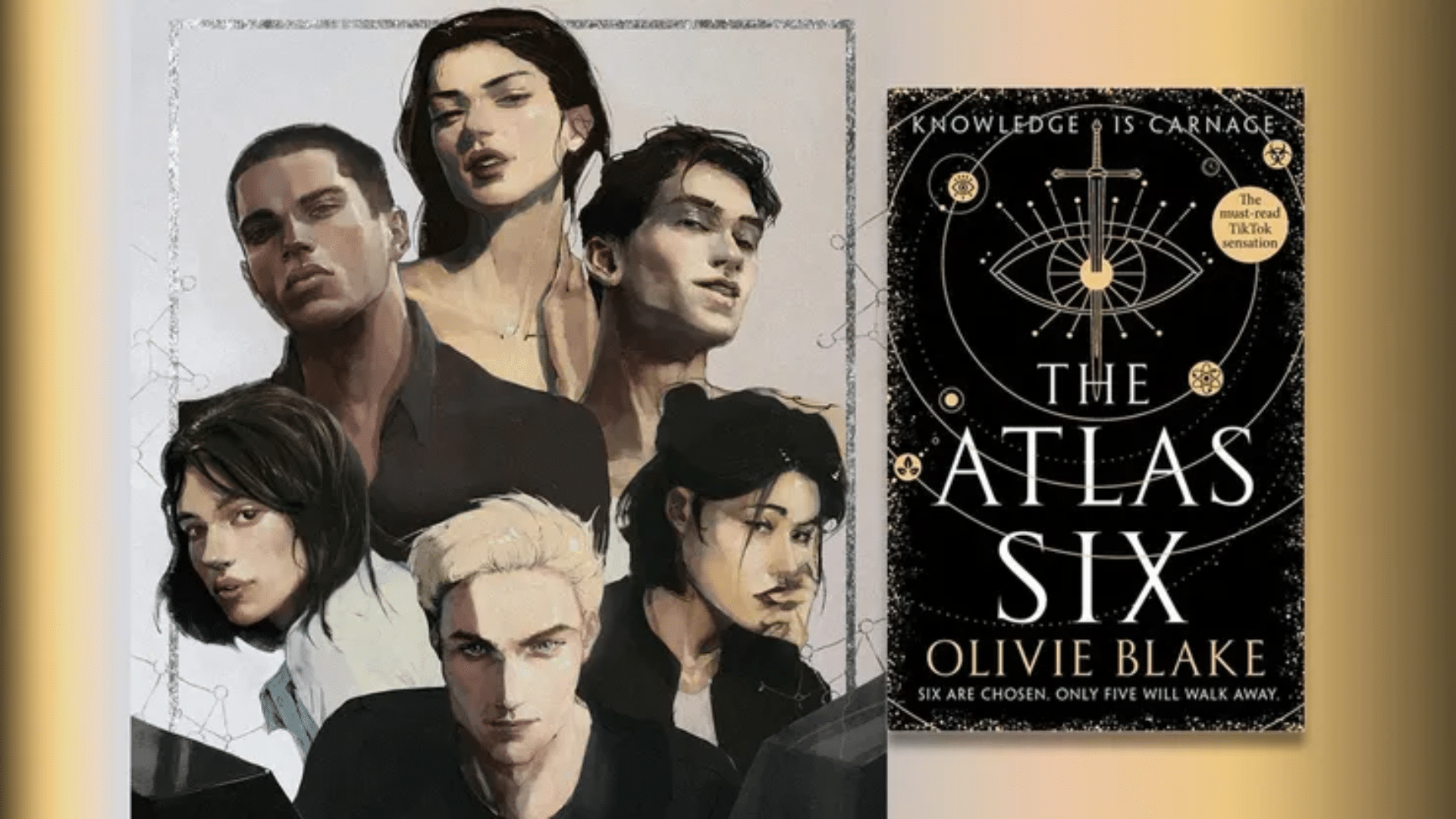
The Atlas Six begins with a simple but dangerous premise: six talented magicians are chosen to join the secretive Alexandrian Society. They’ll spend a year together, but only five will be initiated. The sixth will be eliminated.
The story follows these six “medians” – people with rare magical gifts that put them in the top percentile of talent worldwide. I found the competition setup immediately gripping.
Each character arrives with their own motivations, not knowing that someone must die or be eliminated. Caretaker Atlas Blakely brings them to the Society’s mansion, where they study the lost knowledge of Alexandria. While they learn and grow their powers, tensions rise.
You can feel the competition brewing beneath every interaction. Midway through the book, a shocking betrayal changes everything.
One character vanishes, alliances shift, and the remaining medians discover the Society isn’t what it seems. The real test isn’t about magical ability at all – it’s about power, loyalty, and what each person is willing to sacrifice.
Characters and Character Arc
- Libby Rhodes and Nico de Varona – Rivals from New York with physical magic. Their competitive relationship evolves as they face new challenges together.
- Reina Mori – A naturalist who can communicate with plants. She begins isolated but gradually forms unexpected connections.
- Parisa Kamali – A telepath who uses her mind-reading abilities to manipulate others. Her arc explores the loneliness of always knowing what others think.
- Tristan Caine – An empath who absorbs others’ emotions. You watch him struggle with maintaining his own identity amid the chaos.
- Callum Nova – Perhaps the most dangerous, with the ability to influence others’ decisions. His arc reveals the moral questions behind having such power.
Themes and Plotline
- Knowledge vs. morality – Is any knowledge worth the cost to obtain it?
- Power and corruption – How power changes people, especially when they believe they deserve it.
- Identity and belonging – Each character questions where they fit in this new world.
The plotline builds slowly at first, letting you get to know each character. Then it accelerates with shocking revelations about the Society’s true purpose.
The final chapters deliver twist after twist, culminating in a cliffhanger that completely reframes everything that came before.
What begins as a magical competition becomes a much deeper exploration of knowledge, power, and the lengths people will go to possess both.
What Genre Is The Atlas Six?
“The compulsion to be unique, which is at war with the desire to belong to a single identifiable sameness.”— Olivie Blake, The Atlas Six
The Atlas Six by Olivie Blake falls primarily into the genre of dark academic fantasy. It blends several genres together, making it a bit hard to categorize neatly.
About the Genre
The Atlas Six fits primarily into the dark academia genre with strong fantasy elements. Think magical abilities in a scholarly setting with morally complex characters.
I’d classify it as adult contemporary fantasy, though some readers consider it new adult fantasy due to the characters’ ages (early to mid-twenties).
Dark academia centers on intellectual pursuits in elite institutions, often with Gothic or mysterious atmospheres. In this case, the Alexandrian Society serves as the perfect setting.
You’ll find all the hallmarks: selective membership, hidden knowledge, beautiful architecture, and intense academic pressure.
The fantasy elements are deeply woven throughout. Magic isn’t just decoration – it’s fundamental to the story. Each character’s abilities shape how they interact with the world and each other.
What to Expect?
When you pick up The Atlas Six, prepare for:
- Complex morality. No clear heroes or villains here. Each character operates in shades of gray.
- Intellectual themes. Discussions of philosophy, ethics, and the nature of knowledge appear regularly.
- Character-driven plot. The story moves forward through relationships and personal choices rather than non-stop action.
- Atmospheric writing. Blake creates a rich, immersive world that feels both magical and eerily familiar.
- Slow-burn pacing. The story takes its time to develop characters before accelerating toward its climax.
This isn’t a light beach read. The Atlas Six demands your attention and rewards careful reading.
If you enjoy stories in which brilliant but flawed characters navigate moral dilemmas while wielding extraordinary powers, you’ll be completely absorbed in this darkly intellectual fantasy world.
Ratings and Reviews of The Atlas Six by Olivie Blake
The Atlas Six has generated passionate responses from readers since its release, first as a self-published phenomenon and later through traditional publishing.
This dark academic fantasy featuring six magically gifted individuals competing for admission to a secret society has divided readers – some praise its complex characters and unique premise while others criticize its pacing and writing style.
Goodreads Rating
- The Atlas Six holds a 3.72 out of 5 stars on Goodreads with over 350,000 ratings.
- This solid rating shows that while many readers love the book, it’s also polarizing. I’ve noticed that readers either fall completely in love with Blake’s style or find it doesn’t connect with them.
Goodreads Reviews
- “The character work is absolutely phenomenal. Each of the six medians feels fully realized, with distinct personalities, motivations, and flaws that make them compelling.”
- “Blake creates a world that feels both magical and academic – as if Hogwarts were an exclusive graduate program with deadly stakes.”
- “The first half moves too slowly for my taste. There are lots of philosophical conversations but not enough plot advancement.”
Amazon Reviews
- “I couldn’t put it down. The magic system is unique and the character dynamics kept me guessing until the end.”
- “Blake’s prose is beautiful but sometimes gets too dense. You really have to pay attention to every sentence.”
- “The book promised a competition but delivered more of a character study with philosophical debates.”
How Does the Book Set Itself Apart?
- The magic system is unusually intellectual.
- The morally gray characters feel refreshingly realistic.
- The focus on knowledge itself as power creates a unique tension.
Who Should Read This Book?
The Atlas Six is best suited for adult and new adult readers who enjoy complex characters, morally ambiguous situations, and intellectual fantasy. I’d recommend it to fans of dark academia who want their magical stories with a side of philosophical debate.
This book will especially appeal to you if you enjoy:
- Character-driven stories over action-packed plots
- Books that make you think about deeper questions
- Stories where the line between good and evil blurs
Age and Content Warning
The Atlas Six is not a young adult novel despite sometimes being shelved that way. It’s written for readers 18 and up due to its mature themes and content.
Content warnings include:
- Violence and death. The premise involves one character being eliminated, and there are several violent scenes.
- Sexual content. The book contains explicit sexual situations between characters.
- Substance use. Characters frequently drink alcohol and use drugs.
- Mental manipulation. Several characters use mind-reading and persuasion abilities in ways that raise consent issues.
- Discussions of trauma. Past abuse and childhood trauma are explored.
I found the content warnings important to note because the book’s beautiful cover and popularity on BookTok might make it seem like a lighter read than it actually is.
If you’re comfortable with these elements and enjoy diving into morally complex situations with deeply flawed characters.
The Atlas Six will likely captivate you. The intellectual puzzles and character dynamics make it perfect for readers who like to analyze what they read.
Book Recommendations if You Liked The Atlas Six by Olivie Blake
If you enjoyed the dark academia vibes and complex magical system in The Atlas Six, you’ll likely enjoy these similar books.
I’ve carefully selected titles that capture the same intellectual atmosphere, morally gray characters, and high-stakes competition that make Blake’s work so compelling.
- Ninth House by Leigh Bardugo – This dark academia novel follows Galaxy “Alex” Stern, a woman who can see ghosts, as she monitors Yale’s secret societies that practice different types of magic.
- The Secret History by Donna Tartt – While not featuring magic, this is the quintessential dark academia novel that inspired the genre.
- Babel by R.F. Kuang – Set in an alternate Oxford University, this novel explores a magic system based on translation and silver-working.
- If We Were Villains by M.L. Rio – Another non-magical but perfectly dark academia novel focusing on seven Shakespearean actors at an elite arts college.
- The Scholomance series by Naomi Novik – Starting with “A Deadly Education,” this series features a magical school where survival isn’t guaranteed.
Each of these books captures something special that made The Atlas Six resonate with readers.
Whether it’s the atmospheric settings, morally complex characters, or exploration of knowledge as power, you’ll find familiar elements to enjoy while experiencing entirely new magical worlds.
Conclusion
The Atlas Six offers a unique reading experience that blends dark academia with contemporary fantasy in ways that few other books manage to achieve.
If you’re drawn to the complex characters, the intellectual magic system, or the morally ambiguous storyline, there’s something captivating about this novel.
I hope this summary has helped you understand what makes this book special and why it’s gained such a passionate following.
If you decide to pick up The Atlas Six, prepare yourself for:
- A slower-paced first half focused on character development
- Rich, sometimes dense prose that rewards careful reading
- A stunning finale that will leave you eager for the sequel
The book isn’t for everyone. But if you enjoy stories that make you think, characters who defy easy categorization, and magic that feels both ancient and modern, you’ll likely find yourself drawn into Olivie Blake’s fascinating world.
Happy reading!
About the Author Olivie Blake

Olivie Blake is the pseudonym for Alexene Farol Follmuth, a writer who has taken the literary world by storm with her dark academia fantasy.
Born and raised in Los Angeles, Follmuth initially self-published The Atlas Six under the Olivie Blake pen name in 2020. What makes her story particularly interesting is how she found success.
The Atlas Six gained massive popularity through BookTok (TikTok’s book community), which caught the attention of traditional publishers. Tor Books acquired and republished the novel in 2022, bringing it to an even wider audience.
I find Follmuth’s journey inspiring. She worked as a political consultant before becoming a full-time author, showing that career transitions can lead to unexpected success. When she’s not writing, she lives in Los Angeles with her husband and their cat.
You might notice her distinctive writing style: lyrical prose, complex characters, and philosophical themes. This has become her trademark across both her adult and young adult works.
